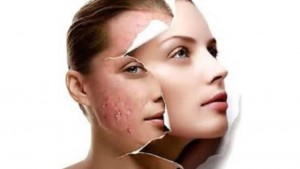Acne causing Bacteria lives on everyone’s skin. One in five people is develop only an occasional pimple over a lifetime.
A UCLA study conducted with researchers at Washington University in St. Louis and the Los Angeles Biomedical Research Institute has discovered that acne bacteria contain “bad” strains associated with pimples and “good” strains that may protect the skin.
The recent findings, published in the Journal of Investigative Dermatology, could lead to new therapies to prevent and treat the disfiguring skin disorder cause by Acne. “It has been learned that not all acne bacteria trigger pimples — one strain may help keep skin healthy,” said principal investigator Huiying Li, an assistant professor of molecular and medical pharmacology at the David Geffen School of Medicine at UCLA. “The study hopes to apply the findings to develop new strategies that stop blemishes before they start, and enable dermatologists to customize treatment to each patient’s unique cocktail of skin bacteria.”
“It has been learned that not all acne bacteria trigger pimples — one strain may help keep skin healthy,” said principal investigator Huiying Li, an assistant professor of molecular and medical pharmacology at the David Geffen School of Medicine at UCLA. “The study hopes to apply the findings to develop new strategies that stop blemishes before they start, and enable dermatologists to customize treatment to each patient’s unique cocktail of skin bacteria.”
The scientists looked at a tinyn microbe Propionibacterium acnes, a strain of bacteria that thrives in the oily depths of pores. When the bacteria aggravate the immune system, they cause the swollen, red bumps associated with acne.
The lab cultured the bacteria to isolate more than 1,000 strains. “The reasearchers were interested to learn that the bacterial strains looked very different when taken from diseased skin, compared to healthy skin,” said co-author Dr. Noah Craft, a dermatologist and director of the Center for Immunotherapeutics Research at LA BioMed at Harbor–UCLA Medical Center. “Two unique strains of P. acnes appeared in one out of five volunteers with acne but rarely occurred in clear-skinned people.”
“The researchers were extremely excited to uncover a third strain of P. acnes that’s common in healthy skin yet rarely found when acne is present,” said Li, who is also a member of UCLA’s Crump Institute for Molecular Imaging. “It is suspected that this strain contains a natural defense mechanism that enables it to recognize attackers and destroy it before it is able to infect the bacterial cell.”
“This P. acnes strain may protect the skin, much like yogurt’s live bacteria help defend the gut from harmful bugs,” Li said. “The next step will be to investigate whether a probiotic cream can block bad bacteria from invading the skin and prevent pimples before they start.”
“The research underscores the importance of strain-level analysis of the world of human microbes to define the role of bacteria in health and disease,” said co-author George Weinstock, associate director of the Genome Institute and professor of genetics at Washington University in St. Louis. “This type of analysis has a much higher resolution than prior studies that relied on bacterial cultures or only made distinctions between bacterial species.”
Acne affects 80 percent of Americans at some point in their lives, yet scientists know little about what causes the disorder and have made limited progress in developing new strategies for treating it. What is clear is that your immune system is your body’s defense mechanism that protects it against foreign invaders of all kinds. Without support it needs, it may not operate at its best.

